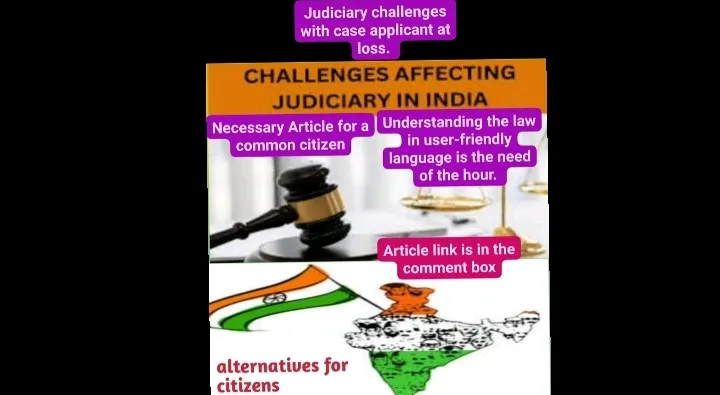How the Indian judiciary can overcome its challenges, plus what are the justice options for the citizens and what are the pros of it?
Strengthening Infrastructure: Invest in improving court infrastructure, technology, and administrative support to reduce backlogs and enhance efficiency.
Judicial Reforms: Implement judicial reforms to streamline procedures, enhance case management, and reduce delays in the legal process.
Increasing Judicial Capacity: Appoint more judges to fill vacant positions and ensure an adequate judge-to-population ratio.
Digitalization: Embrace technology for case filing, tracking, and virtual hearings to enhance accessibility and reduce paperwork. Telelaw is a good initiative. Explore more.
Practical Legal Education: Improve legal education and training to produce skilled professionals who can contribute effectively to the judiciary.
Transparency and Accountability: Ensure transparency in the appointment of judges and establish mechanisms for accountability.
Legal Aid: Expand access to legal aid services, especially for marginalised and underprivileged communities.
Public Awareness: Promote legal literacy and awareness among citizens to reduce frivolous litigation and encourage responsible legal action.
Fast-track...
Judicial Reforms: Implement judicial reforms to streamline procedures, enhance case management, and reduce delays in the legal process.
Increasing Judicial Capacity: Appoint more judges to fill vacant positions and ensure an adequate judge-to-population ratio.
Digitalization: Embrace technology for case filing, tracking, and virtual hearings to enhance accessibility and reduce paperwork. Telelaw is a good initiative. Explore more.
Practical Legal Education: Improve legal education and training to produce skilled professionals who can contribute effectively to the judiciary.
Transparency and Accountability: Ensure transparency in the appointment of judges and establish mechanisms for accountability.
Legal Aid: Expand access to legal aid services, especially for marginalised and underprivileged communities.
Public Awareness: Promote legal literacy and awareness among citizens to reduce frivolous litigation and encourage responsible legal action.
Fast-track...




